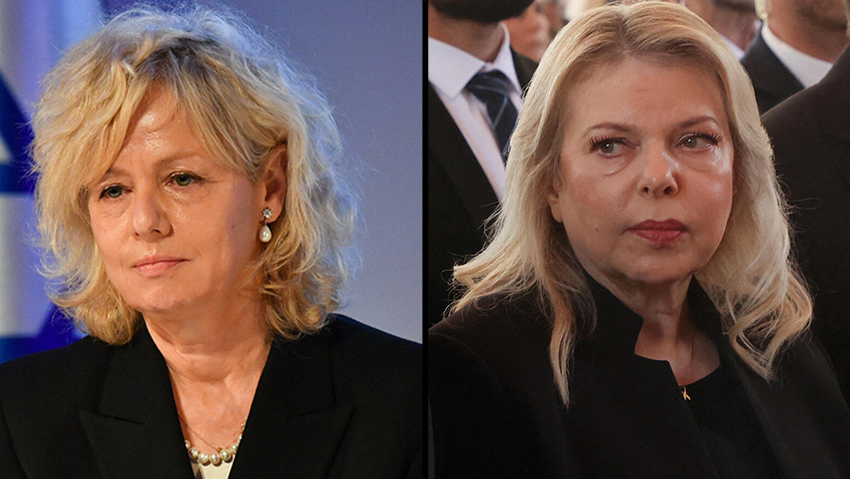Getting your Trinity Audio player ready...
Sara Netanyahu, the wife of Israeli Prime Minister Benjamin Netanyahu, is facing potential legal trouble after allegations surfaced that she may have tried to intimidate a key witness in a corruption case against her husband. The controversy stems from an investigative report by the TV program "Uvda," which revealed text messages allegedly sent by Sara Netanyahu to Hani Blivis, a close aide to the Prime Minister, who was known as a powerful figure in his office. In these messages, Sara Netanyahu reportedly urged Blivis to "go after" Hadas Klein, a key witness in Case 1000, involving accusations of the Prime Minister and his wife receiving expensive gifts, such as champagne and cigars, from billionaire Arnon Milchan in exchange for political favors.
In her messages, Sara Netanyahu reportedly wrote, "We need to go after Hadas Klein, Arnon Milchan’s secretary, who has been defaming us for years. She lies, slanders, and is vile." Shortly after these messages were sent, negative posts about Klein began appearing on social media, raising suspicions that Sara Netanyahu may have been involved in witness harassment and obstruction of justice. This prompted Attorney General Gali Baharav-Miara and State Attorney Amit Isman to instruct the police to open an investigation.
For the police to pursue charges, they will need to prove Sara Netanyahu had "criminal intent"—in other words, that she intended to intimidate Hadas Klein. They will also need to establish a clear connection between the messages allegedly sent to Bleiwis and the social media posts that followed.
Trump during dinner with the Netanyahus
(Video: WPTV)
Witness harassment, the potential charge in this case, is a criminal offense under Israeli law, punishable by up to three years in prison. To convict someone of this offense, prosecutors must demonstrate two main components: intent to harass and evidence linking the harassment to the defendant. A recent example of such a case occurred in 2018, when a man was convicted of harassing Nir Hefetz, a former spokesperson for Netanyahu and a state witness in another case. The man had sent Hefetz a threatening letter, calling him a "snitch," and was later sentenced to community service and a fine.
This investigation into Sara Netanyahu faces a unique challenge: the phone that allegedly contained the incriminating messages belonged to Hani Blivis, who has since passed away. While the police may still use the messages as evidence if they can establish their authenticity, the defense could argue it’s impossible to verify the circumstances under which the messages were sent, creating potential doubts about the evidence’s reliability.
If the investigation progresses, Sara Netanyahu will likely be summoned by the police first for an open testimony and, depending on the evidence, could face formal questioning under caution. The investigation could take months, as the police will need to gather evidence, coordinate with witnesses, and verify findings. There’s also a possibility that the investigation could expand to include other individuals who may have assisted or been involved in the alleged harassment.
2 View gallery


The attorney General believes there's a case
(Photo: GIL COHEN-MAGEN/Pool via REUTERS/Reuters)
The investigation is further complicated by the police’s prior criticism of the "Uvda" report, describing it as "distorted and false." Despite this, the investigation will be handled by the Lahav 433 anti-corruption unit, with close oversight from senior prosecutors to ensure objectivity, particularly given its connection to Sara Netanyahu and the ongoing corruption trials involving her husband.
Get the Ynetnews app on your smartphone: Google Play: https://bit.ly/4eJ37pE | Apple App Store: https://bit.ly/3ZL7iNv
Finally, there are questions about whether these alleged offenses are still within the statute of limitations. For standard cases of witness harassment or obstruction, the statute of limitations is five years. However, if it’s found that Sara Netanyahu conspired with others to harass Hadas Klein, the statute of limitations could extend to ten years.
This case could have significant implications—not just for Sara Netanyahu but also for the broader legal battles surrounding Benjamin Netanyahu’s corruption trials, which have been a focal point of Israeli politics in recent years.





